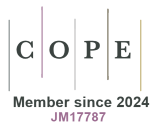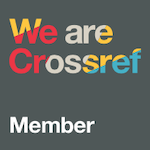FooDia-Net. A technology platform for nutrition education and active people involvement in the prevention of diabetes mellitus: results from the first field trial
DOI:
https://doi.org/10.33393/ao.2023.2338Keywords:
Education, Food literacy, Patient engagement, Type-2 Diabetes MellitusAbstract
Introduction: Type 2 diabetes mellitus (DM) is one of the most widespread chronic diseases in the world and, by its nature, it affects several disciplines. Patients often appear unaware and lacking an adequate lifestyle and appropriate nutritional education to prevent its aggravation. Consequently, it appears essential to promote educational initiatives aimed at helping patients diagnosed with type 2 DM to contain the disease progress. FooDia-Net is a project financed by the Ministry of Health which took place between 2017 and 2020 in 5 Italian regions, aimed at experimenting an innovative operating model of multiprofessional and cross-disciplinary management in the prevention of type 2 DM.
Method: The FooDia-Net protocol was tested through a pilot project which enabled the evaluation food literacy levels and patient engagement through the administration of pre- and post-performance self-assessment questionnaires to evaluate the educational exercises proposed to the panel.
Results: Out of 166 eligible patients, 38 completed the protocol (23%); results show a significant improvement in the levels of food literacy and, from the engagement point of view, despite not being significant statistically, good improvements were registered.
Discussion and conclusion: Results were encouraging with regards to the multidisciplinary management of patients with type 2 diabetes. The FooDia-Net platform ensured continuity of care and emotional support for patients remotely.
References
- World Health Organization. Diabetes. 2020. https://www.who.int/health-topics/diabetes#tab=tab_1
- Su, D., Michaud, T. L., Estabrooks, P., Schwab, R. J., Eiland, L. A., Hansen, G., ... & Siahpush, M. (2019). Diabetes management through remote patient monitoring: the importance of patient activation and engagement with the technology. Telemedicine and e-Health, 25(10), 952-959. DOI: https://doi.org/10.1089/tmj.2018.0205
- Swanson V, Maltinsky W. Motivational and behaviour change approaches for improving diabetes management. Pract Diabetes. 2019;36(4):121-125. https://doi.org/10.1002/pdi.2229 DOI: https://doi.org/10.1002/pdi.2229
- Cullen KW, Chen TA, Dave JM. Changes in foods selected and consumed after implementation of the new National School Lunch Program meal patterns in southeast Texas. Prev Med Rep. 2015;2:440-443. https://doi.org/10.1016/j.pmedr.2015.05.007 PMID:26101737 DOI: https://doi.org/10.1016/j.pmedr.2015.05.007
- Savarese M, Sapienza M, Acquati GM, et al. Educational interventions for promoting food literacy and patient engagement in preventing complications of type 2 diabetes: a systematic review. J Pers Med. 2021;11(8):795. https://doi.org/10.3390/jpm11080795 PMID:34442439 DOI: https://doi.org/10.3390/jpm11080795
- Supper I, Bourgueil Y, Ecochard R, Letrilliart L. Impact of multimorbidity on healthcare professional task shifting potential in patients with type 2 diabetes in primary care: a French cross-sectional study. BMJ Open. 2017;7(11):e016545. https://doi.org/10.1136/bmjopen-2017-016545PMID:29170284 DOI: https://doi.org/10.1136/bmjopen-2017-016545
- Vidgen HA, Gallegos D. Defining food literacy and its components. Appetite. 2014;76:50-59. https://doi.org/10.1016/j.appet.2014.01.010 PMID:24462490 DOI: https://doi.org/10.1016/j.appet.2014.01.010
- Graffigna G, Barello S. Spotlight on the Patient Health Engagement model (PHE model): a psychosocial theory to understand people’s meaningful engagement in their own health care. Patient Prefer Adherence. 2018;12:1261-1271.https://doi.org/10.2147/PPA.S145646PMID:30050288 DOI: https://doi.org/10.2147/PPA.S145646
- Coulter A. Patient engagement--what works? J Ambul Care Manage. 2012;35(2):80-89. https://doi.org/10.1097/JAC.0b013e318249e0fd PMID:22415281 DOI: https://doi.org/10.1097/JAC.0b013e318249e0fd
- Gruman J, Rovner MH, French ME, et al. From patient education to patient engagement: implications for the field of patient education. Patient Educ Couns. 2010;78(3):350-356. https://doi.org/10.1016/j.pec.2010.02.002 PMID:20202780 DOI: https://doi.org/10.1016/j.pec.2010.02.002
- Graffigna G, Barello S. Engagement: un nuovo modello di partecipazione in sanità. Pensiero Scientifico Editore; 2018.
- Lorini C, Santomauro F, Grazzini M, et al. Health literacy in Italy: a cross-sectional study protocol to assess the health literacy level in a population-based sample, and to validate health literacy measures in the Italian language. BMJ Open. 2017;7(11):e017812.https://doi.org/10.1136/bmjopen-2017-017812 PMID:29138204 DOI: https://doi.org/10.1136/bmjopen-2017-017812
- Vespasiani G, Nicolucci A, Erle G, Trento M, Miselli V. Validazione del questionario sulla conoscenza del diabete GISED 2001. Giorn It Diabetol. 2002;22:109-120. Online (https://www.siditalia.it/images/Documenti/Gised/40%20%20%20%20Questionari%20Gised.pdf)
- Graffigna G, Barello S, Bonanomi A, Lozza E. Measuring patient engagement: development and psychometric properties of the Patient Health Engagement (PHE) Scale. Front Psychol. 2015;6:274. https://doi.org/10.3389/fpsyg.2015.00274 PMID:25870566 DOI: https://doi.org/10.3389/fpsyg.2015.00274
- Nørgaard K. Telemedicine consultations and diabetes technology during COVID-19. J Diabetes Sci Technol. 2020;14(4):767-768. https://doi.org/10.1177/1932296820929378PMID:32429702 DOI: https://doi.org/10.1177/1932296820929378









